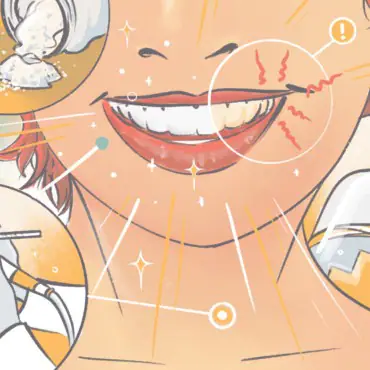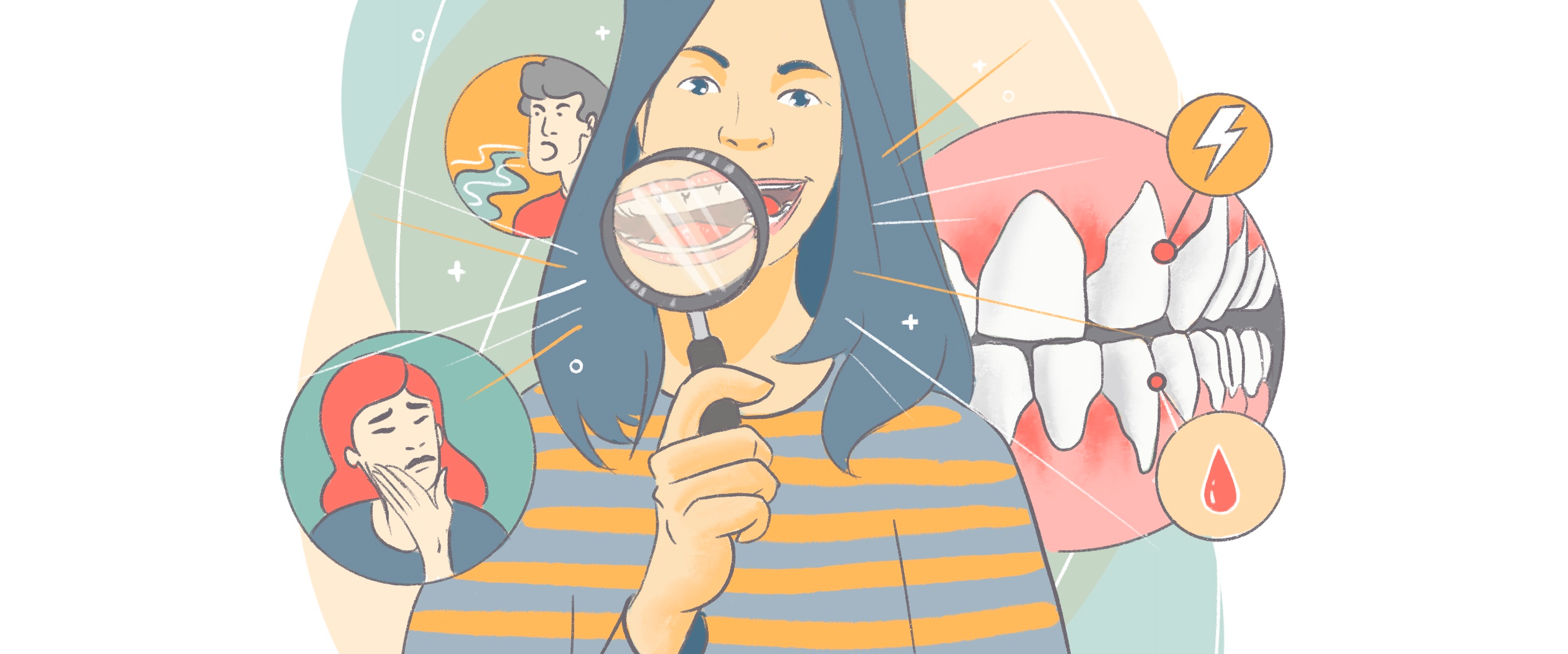Vaping is safer than smoking, so now people can light up whenever they like, right?
Lots of young people have been jumping on the vaping bandwagon, believing it’s a safe way to enjoy a good smoke. In 2017, 11.7% of high school students used e-cigarettes. Just two years later in 2019, that number had jumped to 27.5%. Even 10.5% of middle schoolers were using e-cigarettes in 2019.
The global market for e-cigarettes was valued at $15.04 billion in 2020 and is expected to grow at an astonishing compound annual growth rate of 28.1% until 2028.
But safer doesn’t necessarily mean safe. While it’s true vaping is less toxic than cigarettes, you’re still exchanging one poison for another. Let’s discuss.
What is vaping?
Vaping is a method of smoking touted to be safer than cigarettes. E-juice, which can contain flavorings, nicotine, a host of other chemicals, and sometimes cannabis, is aerosolized by a hot metal coil into a vapor that the user inhales.
Though it can leave a light odor, vaping doesn’t stink like traditional cigarettes. Plus, the wording used to sell e-cigarettes is designed to make you think it only emits harmless water vapor.
Due for a checkup?
Find a top rated dentist near you that takes your insurance.
But the idea that you’re inhaling a “vapor,” which sounds fairly innocuous, is misleading. What you’re inhaling is more of an aerosol, like the type you’d get from a can of hairspray or bug killer. And, like cigarettes, secondhand aerosol can be just as bad for the people around you.
Health effects of nicotine
Most vaping liquids contain nicotine (even the ones that are labeled nicotine-free). This chemical affects your cardiovascular system in dangerous ways. In addition to sending your blood pressure through the roof, it can speed up your heart and narrow the blood vessels. It may also cause the artery walls to harden, contributing to a heart attack.
As an important note, there is technically less nicotine in e-cigarettes than traditional cigarettes. However, the user often ingests more because it is easier to puff away far longer on a vape pen.
Common oral diseases that can be caused by vaping
Does vaping impact your oral health? Along with the negative health effects of nicotine on your cardiovascular system, there are a number of common oral diseases that can be caused or exacerbated by vaping.
- Cavities
- Tooth sensitivity
- Receding gums
- Dry mouth
- Bad breath (halitosis)
- Bruxism
- Gum disease
- Periodontal disease
- Tooth loss
Everybody has a certain amount of bacteria and microbes that live in their mouth. Some of it is good, helping to keep your teeth and gums strong and healthy. But some of it is bad, contributing to the development of yucky stuff like cavities and periodontal disease. This mix of good and bad bacteria is called the microbiome.
Interestingly enough, the microbiome in people who vape is similar to that of people with periodontal disease, even if they show no signs of gum disease.
Plus, this study found that 43% of people who vape had oral infections and periodontal disease compared to only 28% of non-smokers. To be fair, 73% of smokers had oral health problems, so vaping is technically better than smoking.
Due for a checkup?
Find a top rated dentist near you that takes your insurance.
Furthermore, the nicotine can dry up the available saliva in your mouth. Dry mouth as a condition is usually not seen in younger people but is often present in younger people who vape. Without saliva to help wash it away more plaque can build up. This sticky substance rolls out the red carpet for bad bacteria, providing a comfortable home for it in your mouth. In turn, this gives way to a higher number of cavities, mouth ulcers, and other oral health issues.
The nicotine in e-cigarettes also acts as a muscle stimulant, which can cause or exacerbate bruxism (teeth grinding). Many people grind their teeth at night and may not even be fully aware they have a problem. However, pain in their jaw upon waking and damage to their teeth are both good indications.
In short, you’ll be hard-pressed to find a dentist who tells you vaping is a good idea.
Vaping and yellow teeth
One bright spot about vaping is that it does not contain the smoke and tar that comes in traditional cigarettes. These are the principal ingredients that cause those nasty yellow teeth associated with smoking.
Of the ingredients in most e-juice, nicotine can also cause a yellowish tinge, but not usually enough to make a drastic change. Some flavored e-juices contain dyes or flavorings that can color your teeth over time.
However, in general, you don’t have to worry much about yellow or discolored teeth with vaping, particularly if you otherwise follow a good oral health regime. If you feel like your teeth could use a brightening touch, talk to your dentist about tooth whitening options at your next dentist appointment.
Vaping and oral cancer
At this point, pretty much everyone is aware of the link between traditional cigarettes and lung cancer. When e-cigarettes first became popular, they were often marketed as a way for smokers to quit smoking. Unfortunately, it’s becoming clearer that vaping has its own cancer-related dangers.
Give $50, get $50.
Refer someone to book a dentist with Opencare and you’ll both get $50.
One study exposed mice to e-cigarette vapor over the course of a year. After that time, it was found that these mice had a higher occurrence of lung cancer and a higher presence of pre-cancerous changes in the bladder.
Furthermore, there is a new lung disease that is coming to light as a direct result of e-cigarettes and vaping. So much so, that the disease has been dubbed E-Cigarette or Vaping Use-Associated Lung Injury (EVALI).
But what about oral cancer?
For now, vaping is too new to get a good idea of the long-term effects on oral cancer. However, there are various ingredients that are of concern. Certain carcinogens can be found in some e-cigs, including formaldehyde, nitrosamines, and acetaldehyde.
There are also heavy metals used in the heating coil that are aerosolized and ingested by the user during vaping. Exposure to these metals can lead to periodontal disease, inflammation, oral cancer, and even neurodegeneration. Plus, some e-cig aerosols cause DNA damage that can lead to cancer.
Vaping and gum (periodontal) disease
In general, dentists see more cases of periodontal disease in older folks than younger ones. It takes a while for periodontal disease to develop and proper dental hygiene helps ward it off.
However, with the rise of vaping, dentists report seeing more cases of periodontal disease in younger people. When younger people present with periodontal disease, dry mouth, or mouth ulcers, the common culprit tends to be vaping.
The nicotine in e-liquids constricts the blood vessels that nourish your teeth and gums. It also helps to weaken the enamel on your teeth, making it easier for the bacteria in your mouth to start eating away at your teeth and cause cavities.
Over time, your inflamed, weakened gums can get to the point that they can’t sustain your teeth properly. Without treatment, tooth loss is probable.
Should you quit vaping?
If you’ve been asking yourself “why quit vaping?” we hope you now understand more about the oral health risks. Vaping marketers would have you believe that e-cigs are a safer alternative to cigarettes. While this statement is true, safer doesn’t mean safe and e-cigs carry their own dangers that consumers need to be aware of.
Why you should see a dentist more often if you vape
If you decide to vape, be aware of the potential impact of vaping on your oral health. You will need to be extra diligent about your daily dental hygiene habits such as flossing and brushing.
Due for a checkup?
Find a top rated dentist near you that takes your insurance.
Plus, you should see a dentist more often than the recommended two visits a year. The negative effects of common oral diseases like cavities and periodontal disease can be diminished or avoided altogether with prompt treatment by a dental professional.
Don’t have a dentist yet? Here at Opencare, we specialize in matching you with the perfect dentist near you. Don’t let fear of what a dentist will tell you keep you away from the dentist’s office. If you decide to vape anyway, the least you can do is take extra good care of your teeth.








